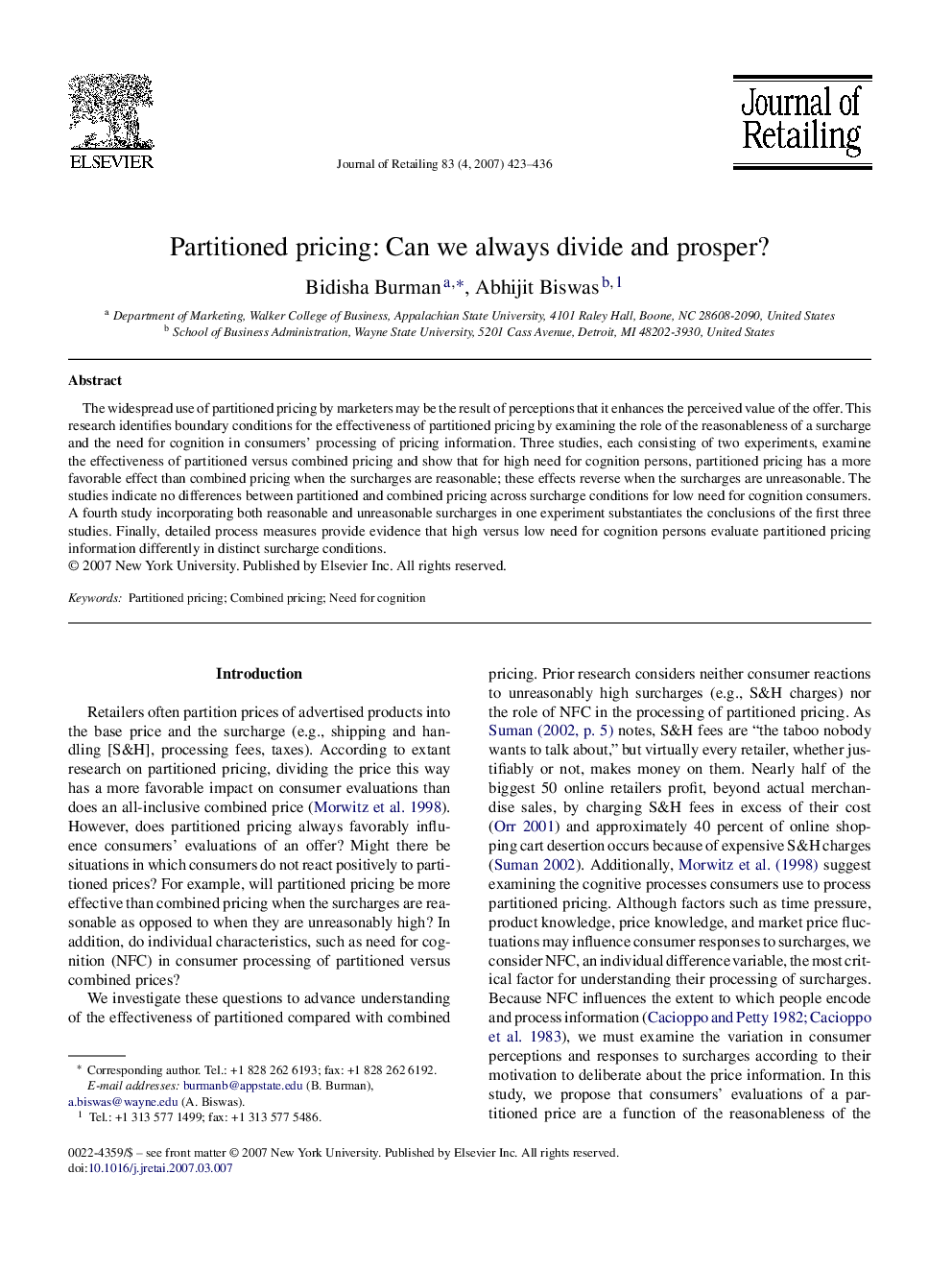| Article ID | Journal | Published Year | Pages | File Type |
|---|---|---|---|---|
| 886631 | Journal of Retailing | 2007 | 14 Pages |
The widespread use of partitioned pricing by marketers may be the result of perceptions that it enhances the perceived value of the offer. This research identifies boundary conditions for the effectiveness of partitioned pricing by examining the role of the reasonableness of a surcharge and the need for cognition in consumers’ processing of pricing information. Three studies, each consisting of two experiments, examine the effectiveness of partitioned versus combined pricing and show that for high need for cognition persons, partitioned pricing has a more favorable effect than combined pricing when the surcharges are reasonable; these effects reverse when the surcharges are unreasonable. The studies indicate no differences between partitioned and combined pricing across surcharge conditions for low need for cognition consumers. A fourth study incorporating both reasonable and unreasonable surcharges in one experiment substantiates the conclusions of the first three studies. Finally, detailed process measures provide evidence that high versus low need for cognition persons evaluate partitioned pricing information differently in distinct surcharge conditions.
